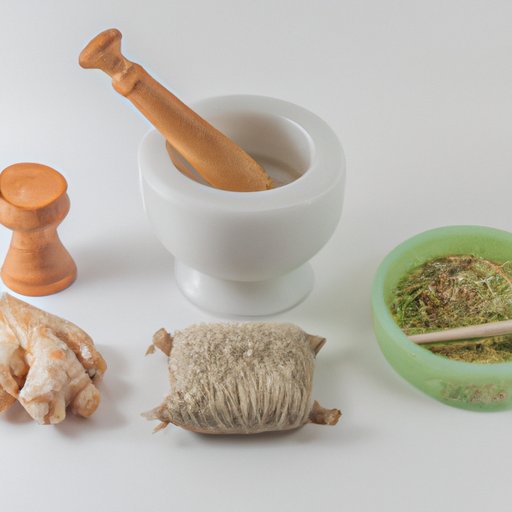
Introduction: What Is Constipation and What You Will Learn
Constipation is a common digestive problem experienced by most people at some point in their life. It is characterized by difficulty or irregular bowel movements, hard and dry stools, and incomplete or uncomfortable evacuation. Causes of constipation can range from a lack of fiber intake, low water consumption, inactivity, or certain medications. In this article, we will discuss six different natural remedies to relieve constipation, how diet affects constipation, five yoga poses to ease constipation, the benefits of probiotics, how to massage yourself to relieve constipation, and five essential daily habits to prevent constipation. With these different methods, you can manage your constipation in a natural and healthy way.

6 Natural Remedies to Relieve Constipation
Natural remedies are a great way to combat constipation without using harsh medications. Here are six easy and effective remedies:
1. Increasing Water Intake
Drinking plenty of water is essential for good digestive health. Having enough water in your body helps soften stools, making them easier to pass, and improves digestion. Dehydration is one of the most common causes of constipation, so make sure to drink plenty of water throughout the day. Aim to drink at least eight glasses of water daily.
2. Eating Fiber-Rich Foods
Foods high in fiber can help regularize bowel movements, prevent constipation, and promote good digestive health overall. Fiber helps soften stools and adds bulk to them, which promotes regular bowel movements. Examples of fiber-rich foods include fruits, vegetables, whole grains, nuts, and seeds. Make it a point to include foods rich in both soluble and insoluble fiber in your daily diet.
3. Exercising Regularly
Incorporating exercise into your daily routine can also help with constipation. Exercise stimulates intestinal movement, which helps move stools along the digestive tract. Doing moderate-intensity or low-impact exercises, such as walking, cycling, or swimming, for at least 30 minutes per day can promote regular bowel movements.
4. Using Essential Oils
Essential oils such as ginger, lavender, and peppermint can aid in digestion and promote regular bowel movements. Applying diluted essential oils to the abdomen in a circular motion or inhaling the scent can offer relief. Peppermint oil has specifically been shown to relax intestinal muscles, making it easier to pass stools.
5. Herbal Remedies
Herbal remedies have been used for centuries to relieve constipation. Senna, aloe vera, and rhubarb root are some commonly used herbal remedies to treat constipation. It’s best to consult a healthcare professional before using herbal remedies as they may interact with other medications or cause adverse effects.
6. Acupressure Points
Acupressure can also aid in relieving constipation. Applying gentle pressure to specific points such as the back of the knees, the inner wrist, or the acupoint in the lower abdomen can help stimulate bowel movements.
The Link Between Diet and Constipation: Foods to Eat and Avoid
A healthy diet plays a significant role in preventing constipation. Here are some guidelines:
Foods to Eat
– Foods Rich in Fiber: Including foods high in fiber like fruits, vegetables, whole grains, nuts, and seeds can help promote regular bowel movements.
– High in Water Content: Foods that are high in water content such as watermelon, cucumber, and lettuce can help hydrate and soften stools, making them easier to pass.
– Magnesium-Rich Foods: Magnesium is a mineral that helps relax the muscles in the digestive tract, making them more efficient in moving stools through the body. Foods that are high in magnesium include spinach, almonds, and legumes.
Foods to Avoid
– Processed Foods: Processed foods are usually low in fiber and high in sugar, which can contribute to constipation and digestive problems.
– Fried Foods: Fried foods are low in fiber and high in fat, which makes them harder to digest and can slow down bowel movements.
– Red Meat: Meat is high in protein and fat, which can make it harder to digest and lead to constipation.
5 Yoga Poses to Ease Constipation
Yoga can also be helpful in preventing constipation. Here are five yoga poses to try:
1. The Wind-Relieving Pose
The wind-relieving pose helps compress the abdomen and can stimulate intestinal movement, which can help move stools along the digestive tract.
2. The Seated Forward Bend
The seated forward bend helps stretch and massage the digestive organs, which can promote regular bowel movements.
3. The Supine Twist
The supine twist is a twist that can help stimulate the digestive system and promote regular bowel movements.
4. The Happy Baby Pose
The happy baby pose is a pose that massages the digestive organs, promoting gut motility and regular bowel movements.
5. The Downward-Facing Dog Pose
The downward-facing dog pose acts as an inversion and helps stimulate the digestive system, promoting regular bowel movements.
The Benefits of Probiotics for Constipation
Probiotics are live microorganisms that live in the digestive tract and promote good digestive health. Here are some key points about probiotics:
Understanding The Role of Probiotics in the Digestive System
Probiotics promote a healthy balance of good bacteria in the gut. The different strains of probiotics in the gut can impact gut motility, reduce inflammation, promote short-chain fatty acid production, and reduce harmful bacteria’s growth that can lead to constipation.
Which Strains May Be Beneficial for Constipation?
Some strains of probiotics have been shown to be particularly beneficial in relieving constipation. These strains include lactobacillus acidophilus, bifidobacterium lactis, and lactobacillus casei.
Effectiveness of Probiotics in Relieving Constipation
Research has shown that probiotics can help relieve constipation and promote regular bowel movements. A 2014 review of 14 randomized controlled trials showed that probiotics significantly improved stool frequency, stool consistency, and gut motility compared to a placebo.
How To Massage Yourself To Relieve Constipation
Self-massage is also an effective way to stimulate the digestive system and relieve constipation. Here’s a simple way to do it:
Walkthrough For Simple Self-Massage Techniques That Stimulate The Digestive System
– Lie down comfortably and loosen any tight clothing
– Apply warm oil or lotion to your abdomen
– Place your hand on your belly button and massage in a circular motion
– Increase pressure gradually and move in a clockwise direction
– Massage for at least five minutes
– Use your fingertips to press on acupressure points near your hip bones
5 Habits To Incorporate Into Your Daily Routine To Ease Constipation
Here are five simple and essential daily habits to promote good digestive health:
1. Staying Hydrated
Drinking enough water is crucial for preventing constipation and maintaining good digestive health. Aim to drink eight to ten glasses of water per day.
2. Regular Exercise
Exercise promotes good digestion and bowel movements. Aim for 30 minutes of moderate exercise daily.
3. Establishing a Regular Mealtime
Eating at the same time every day can help regulate bowel movements and aid in digestion.
4. Maintaining Good Posture
Sitting or standing with good posture can also help stimulate the digestive system and promote gut motility.
5. Taking Time to Relax and De-Stress
Stress can contribute to constipation and other digestive problems. Taking time to relax through yoga or meditation can help promote regular bowel movements.
Conclusion
Constipation can be an uncomfortable and frustrating problem, but it can be managed naturally and healthily by incorporating various remedies and habits into your daily routine. By following these different tips, you can improve your digestive health and prevent constipation. However, it is important to note that if constipation persists, you should consult a healthcare professional to rule out any underlying medical conditions.




